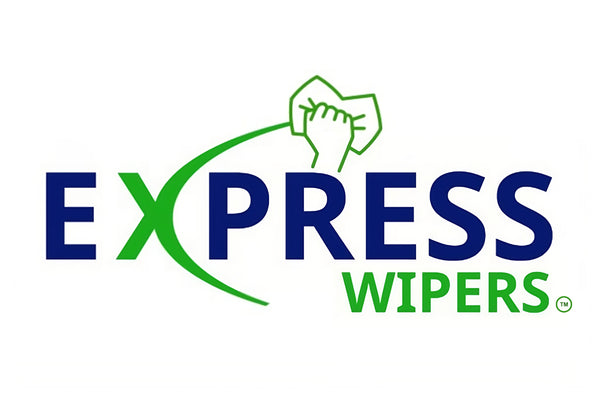The Ultimate Guide to Lint-Free White Cotton Sheeting: Best Uses for Cotton Cleaning Rags
When it comes to cleaning, quality matters, whether you’re tackling tough industrial messes, fine detailing, or everyday household cleaning, the tools you use can make all the difference. At Express wipers Ltd, we’re proud to offer premium recycled white cotton sheeting that’s lint-free, durable, and versatile—perfect for any cleaning job.
Here’s everything you need to know about why lint-free white cotton cleaning rags are a must-have, and the best ways to use them.
Why Choose Lint-Free White Cotton Sheeting?
Our lint-free white cotton cleaning rags are made from 100% recycled textiles, providing an eco-friendly and sustainable alternative to synthetic materials. Here’s why they stand out:
-
Lint-Free Performance: Ideal for cleaning surfaces where residue is unacceptable, such as glass, polished metals, or electronics.
-
Highly Absorbent: Perfect for soaking up spills, wiping away grease, or drying surfaces without leaving streaks.
-
Soft Yet Durable: Gentle enough for delicate tasks but tough enough to handle heavy-duty use.
-
Eco-Friendly: By recycling textiles, we help reduce waste and support a circular economy.
Best Uses for White Cotton Cleaning Rags
Whether you’re a professional cleaner, a mechanic, or a homeowner, our cotton cleaning rags are versatile enough for countless applications. Here are some of the most popular ways to use them:
1. Industrial Cleaning
In industrial settings, clean and lint-free surfaces are often essential. White cotton sheeting rags are excellent for:
-
Wiping down machinery: Their durability ensures they won’t tear or fray during tough jobs.
-
Cleaning oil and grease: Their high absorbency makes them perfect for handling spills in automotive or manufacturing environments.
-
Maintaining tools: Keep tools clean and rust-free by using a dry or lightly oiled cotton rag.
2. Janitorial and Maintenance Tasks
From offices to schools, cotton cleaning rags are a janitorial staple. Use them for:
-
Dusting surfaces: Lint-free properties make them ideal for electronic screens, desks, and shelves.
-
Polishing: Achieve streak-free finishes on mirrors, windows, and stainless steel appliances.
-
General cleaning: They’re great for wiping down countertops, bathroom fixtures, and kitchen surfaces.
3. Automotive Detailing
For car enthusiasts and professional detailers, our cotton rags are a game-changer:
-
Wax application and removal: The soft texture prevents scratching while delivering a polished shine.
-
Interior cleaning: Safely clean dashboards, leather seats, and glass.
-
Engine bay maintenance: Use these rags to tackle grease and grime in hard-to-reach areas.
4. Food Service and Hospitality
In restaurants and hotels, cleanliness is key. White cotton cleaning rags are ideal for:
-
Spill cleanup: Their absorbency quickly handles liquid messes in kitchens or dining areas.
-
Surface sanitization: Use them with disinfectant to clean high-touch surfaces like counters and tables.
-
Polishing glassware: Keep glasses sparkling without leaving lint or streaks.
5. DIY and Craft Projects
Craftspeople and DIY enthusiasts love the versatility of cotton rags for:
-
Painting and staining: Use them to apply or remove paint, varnish, or stain with precision.
-
Cleanup: Perfect for wiping brushes, hands, and surfaces during messy projects.
Tips for Getting the Most Out of Your Cotton Rags
To maximize the lifespan and effectiveness of your cleaning rags:
-
Wash and reuse: Cotton rags are machine washable, making them a cost-effective and sustainable option.
-
Designate specific tasks: Use color-coded bins or labels to separate rags for different jobs (e.g., grease, glass, or dusting).
-
Dispose responsibly: If a rag is beyond repair, consider repurposing it for tasks like oil absorption before discarding it.
Why Recycled Materials Matter
By choosing our recycled white cotton sheeting, you’re not just getting a superior cleaning product—you’re also making an eco-conscious decision. Recycling textiles reduces landfill waste, conserves natural resources, and supports a more sustainable future.

